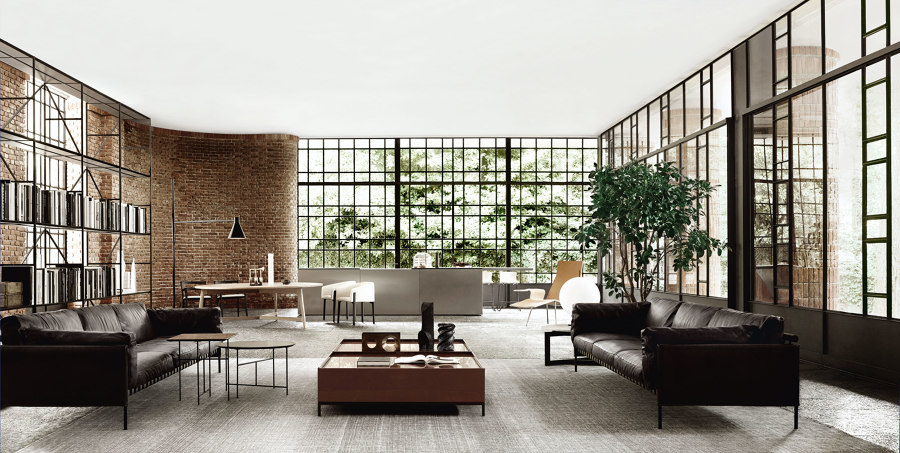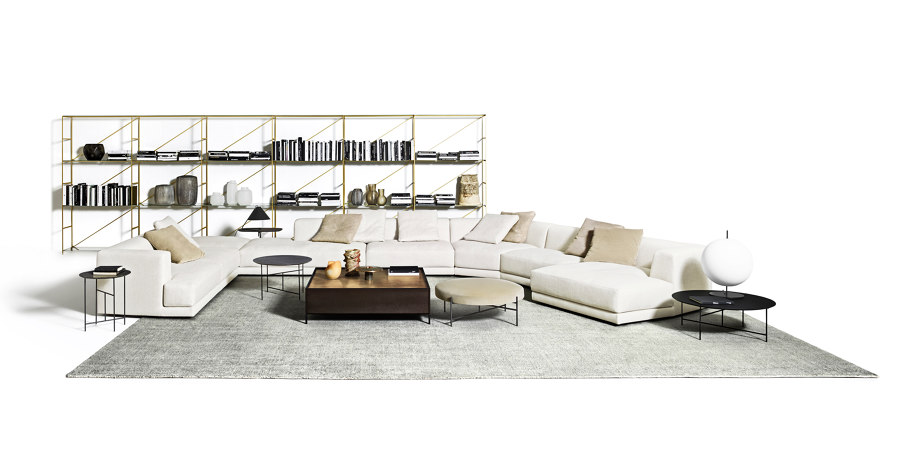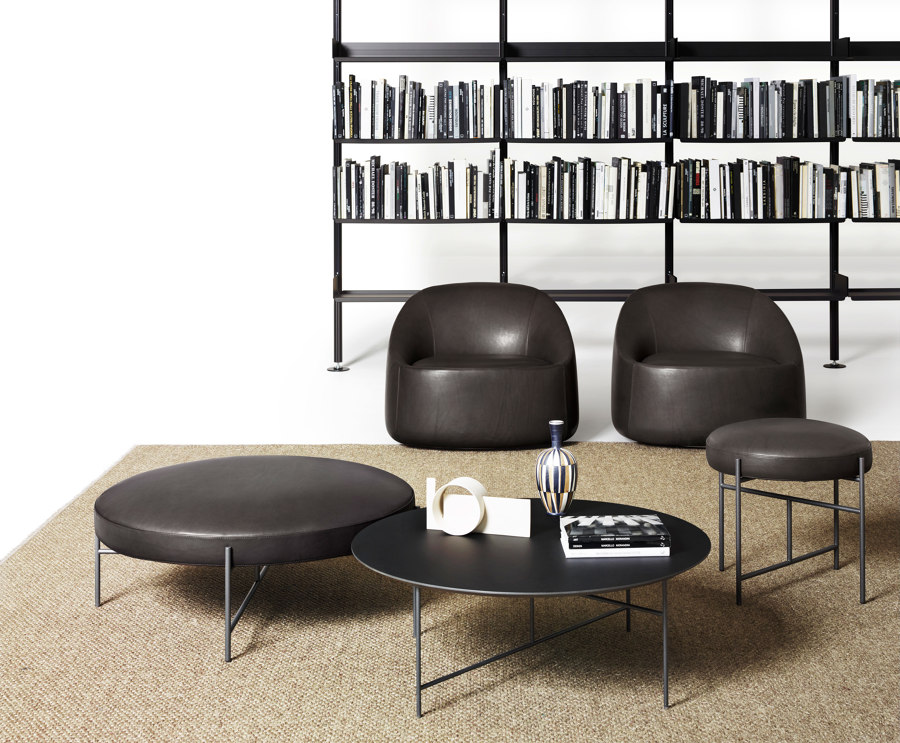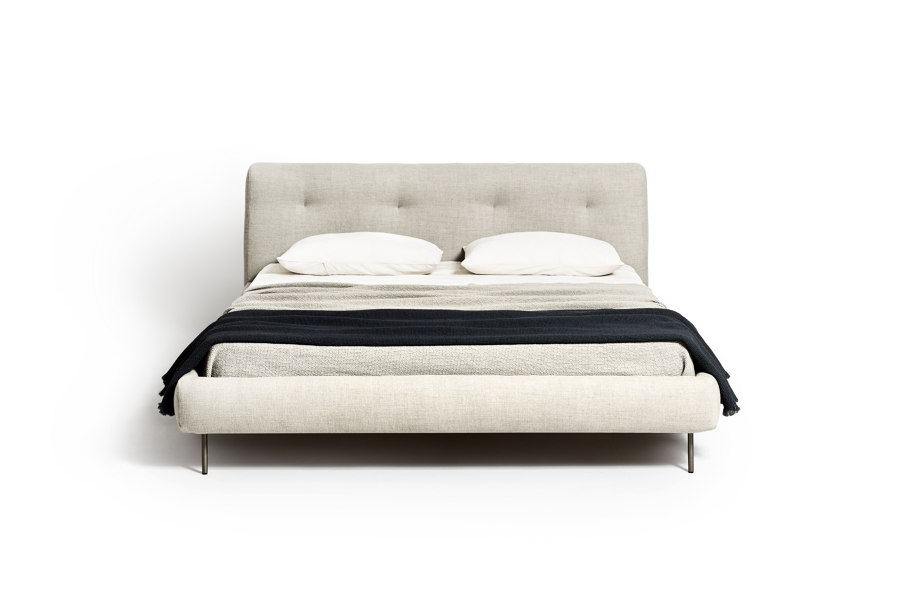The Design Olympics: De Padova
Historia de la marca de James Wormald
15.04.21
See which dazzling selection of international designers has made it into the current collection of legendary Italian manufacturer De Padova.
Selected objects from the Boffi|DePadova group’s combined collections can be seen collaborating here in this curated context. This integrated interior features the Boffi, MA/U Studio and De Padova brands

Selected objects from the Boffi|DePadova group’s combined collections can be seen collaborating here in this curated context. This integrated interior features the Boffi, MA/U Studio and De Padova brands
×Fernando and Maddalena De Padova began importing Scandinavian furniture to Milan in 1956, starting the mid-century wave of Northern European design that would leave a constant mark of timeless interiors across the world. Now part of the tight-knit Boffi|DePadova group of product and interiors brands spread across the higher end of the market, De Padova continues to work with both world-renowned design icons as well as talented up-and-comers from all corners of the globe. These collaborations bring together cultural insights from the designers’ own heritage and personal style, with the De Padova brand’s own calm and relaxed personality.
In this scene, Piero Lissoni’s Alberese sofa sits alongside De Padova’s low Combi Cabinets table, various thin-legged Sen side tables and the tall R.I.G Modules shelving system behind

In this scene, Piero Lissoni’s Alberese sofa sits alongside De Padova’s low Combi Cabinets table, various thin-legged Sen side tables and the tall R.I.G Modules shelving system behind
×The latest international collection includes Italian designer Piero Lissoni’s Alberese sofa. Featuring large angled armrests and deep seats, Alberese is typical of De Padova style, sitting with a quiet, comfortable confidence, while designer of the Imera bed, Sicilian Elisa Ossino, states of her own creation ‘It fulfils not only the desire to sleep, but also the beauty of relaxation, rest and dream moments,’ in reference to the Imera’s welcoming but elegant frame, dainty feet and capitonné headboard.
Top: The Imera bed by Sicilian Elisa Ossino. Above: The Ripamonti armchair was based on voluminous, warm and inviting mid-century chairs that ‘You know will be forgiving and comfortable before you even sit on them.’ says designer, Keiji Takeuchi

Top: The Imera bed by Sicilian Elisa Ossino. Above: The Ripamonti armchair was based on voluminous, warm and inviting mid-century chairs that ‘You know will be forgiving and comfortable before you even sit on them.’ says designer, Keiji Takeuchi
×The Ripamonti armchair, meanwhile, this time from Japanese designer Keiji Takeuchi, at first seems an unconventional, if cosy, addition. But with a wide seat and tapered arms, it holds its weight in the interiors arena. Working best in pairs, the armchairs sit like good friends, sharing a joke. Also Japanese in origin, the Tsuki lamp’s single form resembles an oyster, both presenting and shielding its precious light. Named by designer Naoto Fukasawa after the Japanese word for moon, Tsuki truly shines in its marble form, creating not only a dramatic cone of light, but also a lunar glow from a slightly translucent body.
With a slightly translucent marble body, Naoto Fukasawa’s Tsuki lamp allows a small amount of light to shine through its fascinating natural pattern and highlight the unique character of the material

With a slightly translucent marble body, Naoto Fukasawa’s Tsuki lamp allows a small amount of light to shine through its fascinating natural pattern and highlight the unique character of the material
×De Padova’s glittering range of international designers presents a melting pot of design, neatly packaged in their own branded wrapping.
© Architonic





